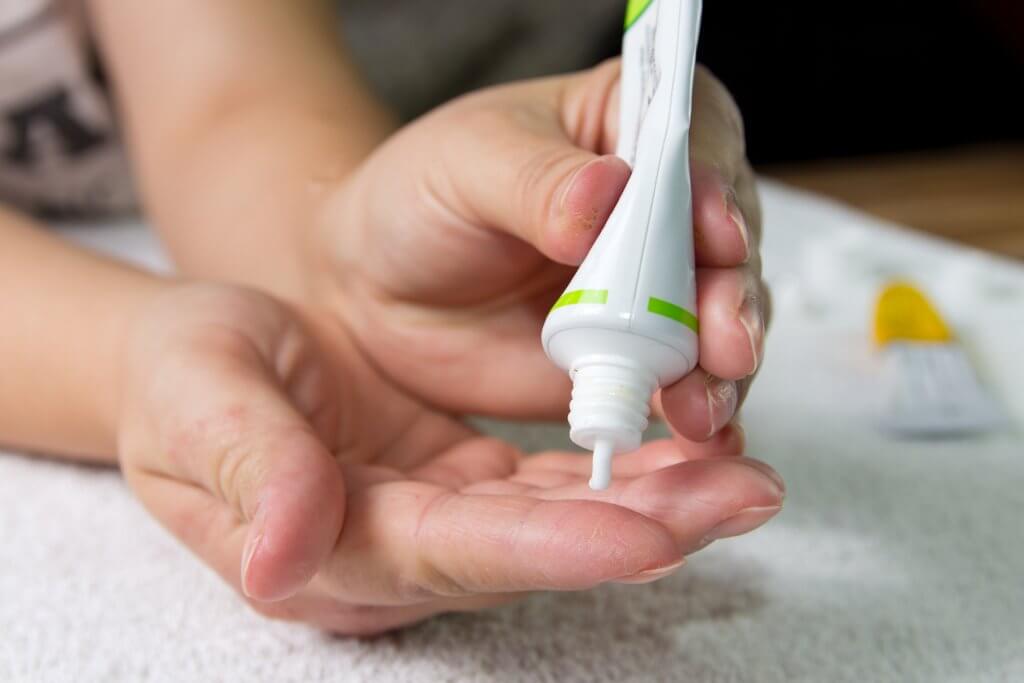People who have atopic dermatitis, also known as eczema, often suffer from the severe itching of the skin. Scratching or rubbing irritates the skin and makes the skin even itchier, sometimes resulting in a rash. This is known as the itch-scratch cycle. Over time and without treatment, this can lead to a scaly rash and cause a permanent thickening of the skin. In addition to the damage to the skin, the itch-scratch cycle can lead to some secondary infections.
In the last couple of years, there have been some new medical treatment options for those who suffer from atopic dermatitis. One of these is a new topical ointment for  patients ages 2 and up. It is an anti-inflammatory ointment, called crisabole, that reduces itching, redness, and inflammation of the skin. Another new treatment option is a biologic medication, Dupilumab. This is an injection for those with moderate to severe eczema, who are 18 years of age and older, and who haven’t responded well to other treatments. Your allergist has the expertise and training to decide if one of these treatment therapies is right for you.
patients ages 2 and up. It is an anti-inflammatory ointment, called crisabole, that reduces itching, redness, and inflammation of the skin. Another new treatment option is a biologic medication, Dupilumab. This is an injection for those with moderate to severe eczema, who are 18 years of age and older, and who haven’t responded well to other treatments. Your allergist has the expertise and training to decide if one of these treatment therapies is right for you.
Regardless of the severity of one’s atopic dermatitis, there are basic skin care tips that everyone with this condition should be implemented at home:
Keep fingernails short, smooth and clean. This can help prevent damage from scratching.
Bathe or shower daily in lukewarm water. Hotter temperatures aggravate the skin. Bathing for at least 10-15 minutes helps the skin absorb water.
Use a gentle skin cleanser. Our allergists can recommend some appropriate soaps. Avoid harshly scrubbing the skin while bathing.
Immediately follow bathing with moisturizing the skin. This entails gently patting the excess water away and applying an allergist-recommended moisturizer to damp skin. This should ideally be done within 3 minutes after bathing. This is known as the 3-minute rule and it helps seal in the water. For those who have been prescribed a topical medicine to put on the skin, do not apply moisturizer on the medicated areas. Contact Allergy and Clinical for more information or help with your atopic dermatitis.